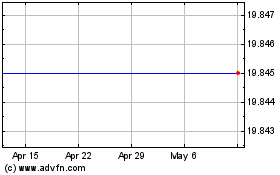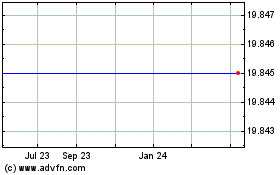By Sarah E. Needleman and Ben Fritz
This article is being republished as part of our daily
reproduction of WSJ.com articles that also appeared in the U.S.
print edition of The Wall Street Journal (November 18, 2017).
Electronic Arts Inc. halted in-game sales of virtual goods in
its high-profile sequel to "Star Wars Battlefront" on the eve of
the game's launch, bowing to pressure from Walt Disney Co. as well
as customers who fear big spenders could gain an unfair edge over
other players.
On the eve of the videogame's launch, Electronic Arts said it
was turning off such microtransactions for now and that they would
be restored at an unspecified later date.
The decision came after executives at Disney, which owns "Star
Wars" and licensed the videogame rights to Electronic Arts, grew
upset at how online outrage over the costs of gaining access to
popular characters such as Luke Skywalker reflected on their
marquee property, a person familiar with the matter said.
Even Chief Executive Robert Iger was alarmed. Ultimately,
Disney's head of consumer products and interactive media, Jimmy
Pitaro, sent a message to Electronic Arts this week outlining
Disney's concerns, the person said.
"We've heard the concerns about potentially giving players
unfair advantages," Oskar Gabrielson, general manager at Electronic
Arts's DICE studio, said in a statement Thursday. "This was never
our intention. Sorry we didn't get this right."
A little more than a month before the "Star Wars Battlefront II"
launch, players testing the game told Electronic Arts it had gone
over to the dark side.
The sequel packed in too many ways to bleed money -- for
souped-up weapons or fancy character animations -- from people
already expected to spend $60 to buy the game, the testers said.
With the Nov. 17 release date looming, Electronic Arts developers
retooled the game by making some features more widely available
without asking players to reopen their wallets.
It wasn't enough: A social media outcry in early November forced
Electronic Arts to tweak the game again, allowing players to much
more quickly access beloved champions such as Luke Skywalker and
Darth Vader without needing to dole out extra cash. Electronic Arts
finally put a temporary stopper on Thursday, the day before the
launch.
Electronic Arts doesn't expect the move to have significant
impact on fiscal 2018 earnings, it said Friday in a Securities and
Exchange Commission filing. The company's guidance calls for $5.1
billion in revenue for the fiscal year ending in March.
Halting microtransactions "reduces the risk of a unit miss,"
Morgan Stanley analyst Brian Nowak said in a note to investors. The
company needs to redefine its in-game spending strategy so it
doesn't impair the core game experience, he said.
Shares of Electronic Arts were down 2.5% in afternoon trading
Friday.
Electronic Arts's pivot on the cusp of releasing a potential
blockbuster -- the game's predecessor sold more than 14 million
copies -- reflects swelling tension over how videogames in the $100
billion industry are conceived, created and sold.
Driving the transformation is videogame companies' ability to
sell full games, including their back catalogs, as well as
expansion add-on content and lucrative in-game goods digitally, at
any time.
Global sales of microtransactions and other extra content for
console videogames are expected to rise 30% to $7.29 billion this
year, according to the research firm Newzoo.
By sidestepping manufacturing, packaging and retailing,
videogame makers have boosted profit margins. On a Nov. 3 earnings
call, Activision Blizzard Inc. finance chief Spencer Neumann said
the game publisher makes roughly $10 in extra profit each time a
consumer downloads a game instead of purchasing it at retail.
The allure of digitally fueled gains has sent the shares of
major game publishers soaring to new highs over the past five
years.
As of Thursday's close, Electronic Arts' stock price was $111,
up from $78 a year ago and $13 in 2012. Take-Two Interactive
Software Inc.'s stock price was $118, up from $46 a year ago and
$11 in 2012. Activision Blizzard's was $64, up from $38 a year ago
and $11 in 2012.
"Right now the videogame industry is very sexy," said Evan
Wingren, an analyst at KeyBanc Capital Markets Inc. "The digital
shift is driving more investor interest than probably ever
before."
Microtransactions are an increasingly important piece of the
pie, but critics have balked as such in-game goods for sale shift
from nice-to-haves such as new costumes to more integral pieces of
content, such as access to high-powered characters. Other games,
including Activision Blizzard's "Destiny 2" and Warner Bros.
Entertainment Inc.'s "Middle-Earth: Shadow of War" also faced a
backlash over microtransactions.
Sales during the important holiday season shouldn't have too
much an impact as gift givers likely aren't aware of the brouhaha,
Wedbush Securities analyst Michael Pachter said.
Electronic Arts was "much too aggressive in the implementation"
of its monetization strategy, Mr. Pachter said. He expects
Electronic Arts to reinstate in-game purchases by January after
further tweaking the formula.
Joseph Budak, a 19-year-old college sophomore, said he canceled
his preorder of the game in early November after participating in
the beta. No matter how well he did, he said, he couldn't make
quick headway unlocking in-game content. "It was unfair."
Write to Sarah E. Needleman at sarah.needleman@wsj.com and Ben
Fritz at ben.fritz@wsj.com
(END) Dow Jones Newswires
November 18, 2017 02:47 ET (07:47 GMT)
Copyright (c) 2017 Dow Jones & Company, Inc.
Electronic Arts Inc. (MM) (NASDAQ:ERTS)
Historical Stock Chart
From Dec 2024 to Jan 2025

Electronic Arts Inc. (MM) (NASDAQ:ERTS)
Historical Stock Chart
From Jan 2024 to Jan 2025
